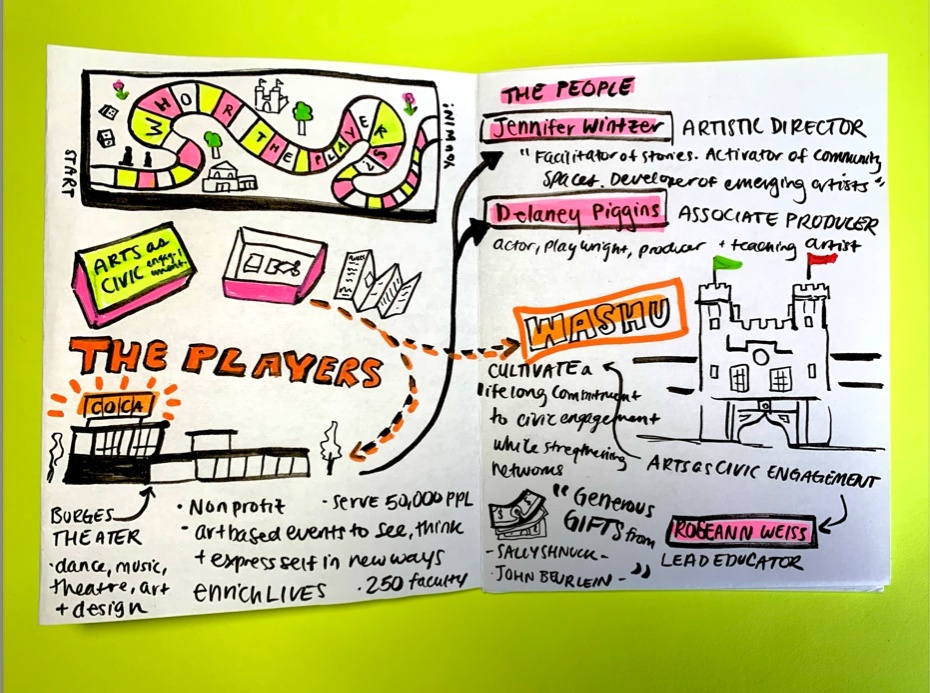An Introduction to Engaging Community
2021-08-11 • Liz Kramer

Image from “Engaging Community: Zine + Notebook” by Sophie Devincenti
Spring 2021 online seminar taught by Liz Kramer, associate director of the Office for Socially Engaged Practice
In spring 2021, 11 students spent half the semester exploring the skills, techniques, and tactics of community engagement, starting with the most fundamental unit of engagement: a relationship. During the seven-week class Engaging Community: Understanding the Basics, the students built relationships with each other, practiced concepts of engagement and collaboration through workshops, and developed roadmaps to follow into their next steps in their own work after the class.
The course, taught by Liz Kramer, the associate director of the Office for Socially Engaged Practice, builds on the workshops the office has offered for many years to students enrolled in studios and seminars, as well as to student organizations and community partners. Throughout the class, students were given opportunities to interact with each other, and put themselves in scenarios where they would have to think through how to engage with each other and with complex topics.
The student enrollment included undergraduates and graduates from their first year to their final year. While most students were enrolled in the Sam Fox School, a handful of students from engineering, public health, and social sciences disciplines also joined the class.
“The diverse identities, ages, disciplinary backgrounds, and experiences of the cohort brought richness to our class discussion and to the workshop activities,” said Kramer. “I particularly enjoyed seeing the students learn from each other. While everyone in the class was interested in some kind of creative practice, it was clear from the first day that everyone had something to learn from everyone else.”
In order to support this learning from and with each other, one assignment of the course was to complete one-on-one conversations with other students. Topics covered in class served as initial conversation prompts, but each student pair had latitude to explore topics relevant to them. Following each conversation, students reflected on their conversations through writing, drawing, or sketching.
“Looking at the students’ reflections, it was clear that the conversations showed not only how important it is to build personal relationships, but also how much we can learn about ourselves through other people,” Kramer said. “I wanted us to reflect on how, when we engage with communities—those we are part of, and those we are newly entering—we have as much to gain as the community does.”
Workshops during the class included power analysis, partnership development, and interdisciplinary translation. The course meetings occurred entirely online due to the COVID-19 pandemic, with most workshops involving small group work and visual documentation, utilizing tools like Miro and Google Docs.
To support students’ in their next steps, the final project for class was an open-ended prompt guiding students to create something that helped them demonstrate how they would pursue community-engaged or pro-social work going forward. Students manifested their reflections in a variety of different formats, from creating to-do lists for the next six months to a vision for their first post-graduation effort.
“While Engaging Community was a quick introduction to the concepts needed for successful engagement, I hope that it gave students a taste of what investing in engaged practice might look like in their future,” Kramer said. “As they go forward in their careers, education, and practice, these skills will prove valuable in so many situations.”